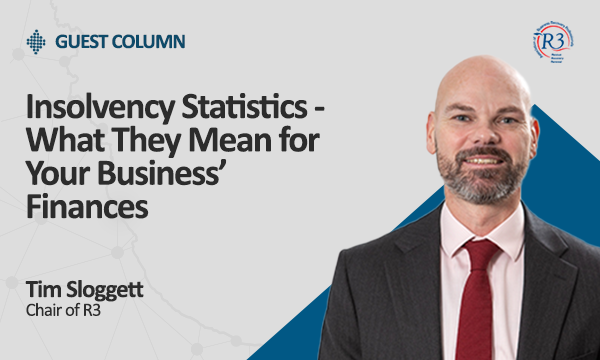A Biased View of Insolvency Practitioner
A Biased View of Insolvency Practitioner
Blog Article
The Buzz on Insolvency Practitioner
Table of ContentsInsolvency Practitioner for BeginnersFascination About Insolvency PractitionerExcitement About Insolvency Practitioner9 Easy Facts About Insolvency Practitioner ShownHow Insolvency Practitioner can Save You Time, Stress, and Money.Some Known Factual Statements About Insolvency Practitioner Top Guidelines Of Insolvency Practitioner
Insolvency is when obligations are more than the worth of the firm, or when a debtor can not pay the debts they owe. A business can come to be insolvent as a result of a number of circumstances that bring about poor capital. When faced with bankruptcy, a business or individual can call creditors directly and restructure financial obligations to pay them off.
Business proprietors might call financial institutions straight and restructure debts right into more convenient installments. Financial institutions are usually amenable to this technique because they desire to be paid back and stay clear of losses, even if the settlement is on a delayed timetable.
The owner develops a proposal describing how the financial obligation might be restructured making use of price reductions or other plans for assistance. The proposal shows creditors how business might produce sufficient cash flow for successful operations while paying its financial obligations. Usually, a forgiven financial debt might be considered income by the Irs (INTERNAL REVENUE SERVICE).
The Of Insolvency Practitioner
When a service has to pay increased prices for products and services, the firm passes along the cost to the consumer. Rather than pay the enhanced expense, numerous consumers take their service elsewhere so they can pay much less for a services or product. Shedding customers causes shedding revenue for paying the firm's creditors.
When procedures stop, so does the firm's income. Some companies become financially troubled since their items or solutions don't advance to fit consumers' transforming requirements.
8 Easy Facts About Insolvency Practitioner Explained
Expenditures surpass revenues and expenses remain overdue. Types of insolvency include cash-flow insolvency and balance-sheet insolvency. Cash-flow insolvency takes place when a business has the possessions to cover their financial debts but they are in the incorrect form, such as property rather of liquid funds. Balance-sheet bankruptcy, on the other hand, indicates a lack of possessions in any type to cover debts.
The IRS states that an individual is bankrupt when the overall liabilities go beyond complete assets. Insolvency Practitioner. A personal bankruptcy, on the various other hand, is an actual court order that shows exactly how a bankrupt person or business will certainly repay their creditors, or exactly how they will certainly offer their assets in order to make the payments
Indicators on Insolvency Practitioner You Should Know
If that scenario prolongs longer than expected, it can lead to personal bankruptcy. When a business or person is financially troubled, they can not satisfy their economic commitments. Solvency is when you have enough funds to cover the repayments you owe. A company is thought about solvent when official website they have much more properties than responsibilities.

Comprehending the elements that can bring about bankruptcy, such as overspending, can aid you stop insolvency and its effects.
The smart Trick of Insolvency Practitioner That Nobody is Discussing
It is popular that supervisors and policemans of firms (and managers of minimal responsibility business) owe fiduciary tasks to their companies and their investors (or participants). These fiduciary obligations are specified by state statutes and, though there are variations from one state to another, they generally consist of a task of commitment and a task of treatment.
The duty of treatment needs supervisors and policemans to exercise persistance, to make enlightened decisions, and to act in good faith to make sure that their actions remain in the most effective interest of the firm. Though past the extent of this conversation, some states enable these responsibilities to be limited investigate this site either by so noting in the business records or complying with various other needs.
7 Simple Techniques For Insolvency Practitioner

Beware regarding giving shareholders preferential therapy at the expenditure of lenders (e.g., licensing and funding a dividend or a supply redemption). Beware regarding special treatment in between classes of investors. Make practical efforts to learn all the facts before taking a certain training course of action; supervisors ought to really believe that any kind of decisions made are in the finest rate of interests of the firm in its whole (i.e., choices will be evaluated in hindsight taking into account the impact of such actions on the corporation).
In any insolvency or insolvency case, settlements made to certain creditors at the expense of other creditors can be clawed back, particularly if there is some connection between the company and the lender. Consider recommending at a yearly shareholder conference (or any kind of other conference of investors) a resolution affirming that all prior service decisions and actions taken by the directors and police officers of the firm were taken in great belief after an exercise of practical treatment.
Not known Factual Statements About Insolvency Practitioner
Fully disclose any personal or service partnerships with celebrations beyond of purchases including the company to prevent the appearance of a problem of passion. In assessing potential fund elevating deals or a sale of properties of the troubled firm, understand that these purchases might be scrutinized later on taking into account any type of subsequent expansion of directors' fiduciary tasks to consist of lenders.
Report this page